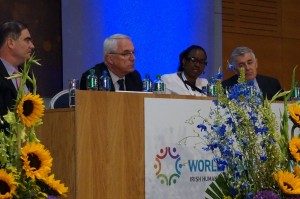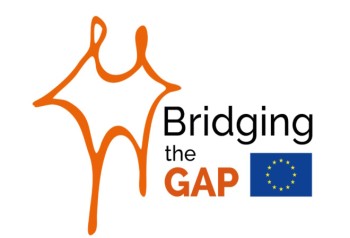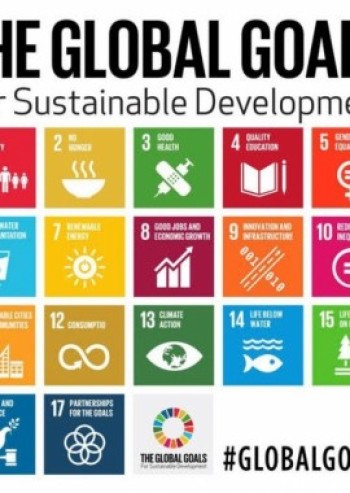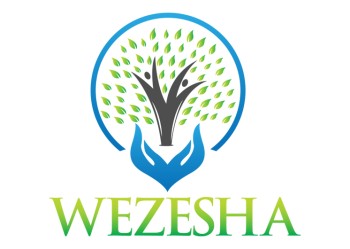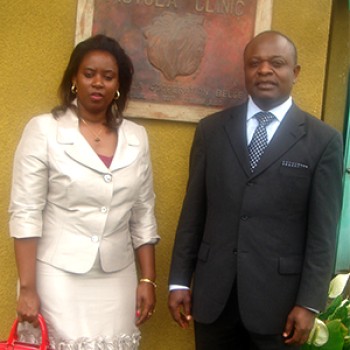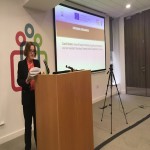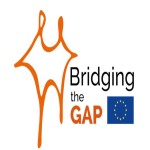DIASPORA ENGAGEMENT IN HUMANITARIAN RESPONSE Presentation by Salome Mbugua at World Humanitarian Summit, Dublin, Ireland:
I am glad to be here and in particular this hall a venue where my
graduation was held 14 years ago. I feel honored to be asked to give a
quick input into this meeting that is focusing on a very crucial issue!
Indeed our world is experiencing extended humanitarian crises – both
natural & man-made- outbreak of Ebola in Sierra Leone, Earthquake in
Nepal, War in Syria, DRC, and Sudan all these confirm our fears. I am
indeed delighted that Diaspora community have been identified in the
call to involve a multitude of stakeholders for a more sustainable and
effective response. This highlights and acknowledges the crucial role
that this group plays not only in Development but also in humanitarian
crisis. Diaspora has already been acknowledged as an important
development actor by many governments and countries around the
world- in Ireland for example, more emphasis has been on the Irish
Diaspora which is great based on the crucial role that the Irish
Diaspora has and continues to play for the development of Ireland.
However there has been a lack of recognition and support of Diaspora
communities living in Ireland- out of the 12 percent of the Irish
population are foreign nationals many of which are making contribution
to their countries of origin. Despite the fact that Diaspora is highlighted
in the Irish international policy paper- one world one future-, there
have been no support for Diaspora groups here. Wezesha, the
organization that I am working with, is focusing on African Diaspora
and has made all efforts to engage with Irish International NGOs
mainly working in Africa and Government departments but this has not
been easy- from our experience Diaspora groups sometimes have been
undermined, seen as competitors, not organized, un experienced or not
equipped enough to run organizations, even after many years of proving
themselves.
Wezesha is currently working on mapping the Africa Diaspora in
Ireland on top of overseas actions/activities in DRC and Kenya. From
some of the feedback that we have received so far from our mapping,
there are great contributions already been made by African Diaspora
living in Ireland to their countries of origin- building of schools, library,
hospitals, working on climate change, human right and empowerment
projects. Diaspora have been making huge contribution in
Humanitarian response, they provide assistance with the hopes that
suffering can be lessened and recovery speeded up. Many do this
through use of websites, on-line donation platforms, text donations,
through knowledge and skills sharing, by volunteering and rendering
Professional expertise, socially they are able to access communities and
have built networks and trust with these communities. They provide
with collection and distribution of goods- food & non food. Others
provide assistance through relocation of their family members and
friends from disaster areas. Politically they lobby their governments for
better policy development, others provide advice on development
initiatives or resilience measures to help counteract any future
disasters. With feelings of loyalty, and commitment to their country of
origin Diaspora may sustain engagement during a crisis, beyond
humanitarian response into political transitions and broader
development processes, therefore Diaspora links with country of origin
may position them to provide unique contributions to the humanitarian
community.
Moving forward
To improve coordination mechanisms between Diasporas and the
mainstream humanitarian system there is need for better
understanding and study of Diaspora means of intervention and
organisational capacities- international humanitarian actors should be
aware of Diaspora groups/organisations There is need for an open
Dialogue and engagement. Institutions should understand,
acknowledge, value and support Diaspora initiatives
Acknowledge and recognize Diaspora added advantage this includeCultural
Knowledge, Skill sets, Language and communication.
Governments in many countries has lately realised the role that the
Diaspora plays in development of their countries of origin- earning
them respect, this is an added advantage ( many countries now have
Diaspora policies)
It is important to implement Diaspora policy and render support to
build the capacity and systematic working structures of Diaspora
groups/organisations – Ireland need to take this step
uphold to the humanitarian principles all the times. All humanitarian
Actors including Diaspora must adhere to all the four humanitarian
principles including the fifth principle that Ireland is recommendingSubsidiarity.
To conclude I would like to emphasize that Diaspora is already engaged
in humanitarian response and willing to work in collaboration with
other actors to make our world a better place. Diaspora groups and
organizations are indeed best placed, having ties already with people
and communities in their areas of origin. As a result, recognising the
role of Diaspora and partnering with them in the humanitarian context
can be considered an innovative approach to maximize the impact of
assistance.
Thank you!
